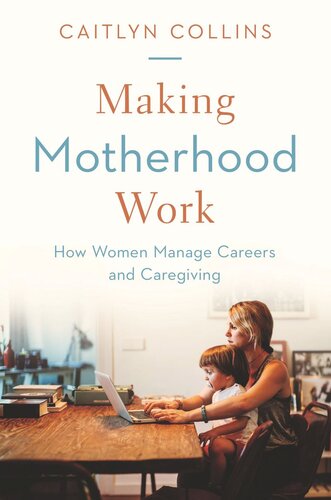

Most ebook files are in PDF format, so you can easily read them using various software such as Foxit Reader or directly on the Google Chrome browser.
Some ebook files are released by publishers in other formats such as .awz, .mobi, .epub, .fb2, etc. You may need to install specific software to read these formats on mobile/PC, such as Calibre.
Please read the tutorial at this link: https://ebookbell.com/faq
We offer FREE conversion to the popular formats you request; however, this may take some time. Therefore, right after payment, please email us, and we will try to provide the service as quickly as possible.
For some exceptional file formats or broken links (if any), please refrain from opening any disputes. Instead, email us first, and we will try to assist within a maximum of 6 hours.
EbookBell Team

5.0
88 reviewsA moving, cross-national account of working mothers’ daily lives—and the revolution in public policy and culture needed to improve them
The work-family conflict that mothers experience today is a national crisis. Women struggle to balance breadwinning with the bulk of parenting, and stress is constant. Social policies don’t help. Of all Western industrialized countries, the United States ranks dead last for supportive work-family policies: No federal paid parental leave. The highest gender wage gap. No minimum standard for vacation and sick days. The highest maternal and child poverty rates. Can American women look to European policies for solutions? Making Motherhood Work draws on interviews that sociologist Caitlyn Collins conducted over five years with 135 middle-class working mothers in Sweden, Germany, Italy, and the United States. She explores how women navigate work and family given the different policy supports available in each country.
Taking readers into women’s homes, neighborhoods, and workplaces, Collins shows that mothers’ desires and expectations depend heavily on context. In Sweden—renowned for its gender-equal policies—mothers assume they will receive support from their partners, employers, and the government. In the former East Germany, with its history of mandated employment, mothers don’t feel conflicted about working, but some curtail their work hours and ambitions. Mothers in western Germany and Italy, where maternalist values are strong, are stigmatized for pursuing careers. Meanwhile, American working mothers stand apart for their guilt and worry. Policies alone, Collins discovers, cannot solve women’s struggles. Easing them will require a deeper understanding of cultural beliefs about gender equality, employment, and motherhood. With women held to unrealistic standards in all four countries, the best solutions demand that we redefine motherhood, work, and family.
Making Motherhood Work vividly demonstrates that women need not accept their work-family conflict as inevitable.